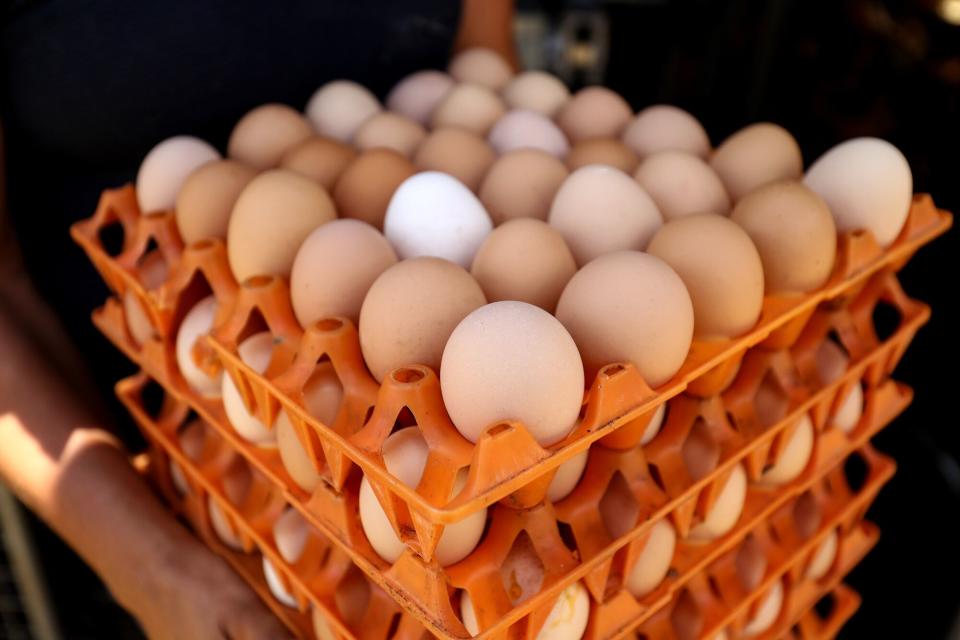Bird Flu Outbreak Leads Australian Stores to Put Limits on Egg Buying

(Bloomberg) -- Major Australian supermarket chain Coles Group Ltd. is putting limits on egg purchases on fears of shortages as authorities try to counter the spread of avian influenza virus.
Most Read from Bloomberg
Russia Is Sending Young Africans to Die in Its War Against Ukraine
NYC Landlord to Sell Office Building at Roughly 67% Discount
Customers in all states except Western Australia will be limited to buying two egg cartons a day, Coles said in a statement.
The move comes after the highly pathogenic H7N3 strain of avian influenza was detected at a fifth farm in Victoria last week. Over half a million chickens have been euthanized in the state and about 450,000 eggs are being destroyed every day to contain the spread of the virus, the Australian Broadcasting Corp. reported.
Quarantine zones have been set up to restrict the movement of birds, feed and equipment near the infected farms after the first cases were detected last month. Last week, a man in Mexico died after contracting the H5N2 bird flu — a strain that hadn’t been confirmed in humans before.
H7N3 is separate to the H5N1 strain of bird flu, which has devastated wild bird and mammalian species across the globe in recent years, but has not been detected in Australia. In March, H5N1 was reported in dairy cows in the US, where it contaminated milk supplies and caused non-serious eye infections in two farm workers.
Australian eggs remained safe to consume, and there was no risk of contaminated eggs getting into the supply chain, Agriculture Minister Murray Watt said on Monday.
Most Read from Bloomberg Businessweek
As Banking Moves Online, Branch Design Takes Cues From Starbucks
Legacy Airlines Are Thriving With Ultracheap Fares, Crushing Budget Carriers
Food Companies Hope You Won’t Notice Shortages Are Raising Prices
Sam Altman Was Bending the World to His Will Long Before OpenAI
©2024 Bloomberg L.P.

 Yahoo Finance
Yahoo Finance 